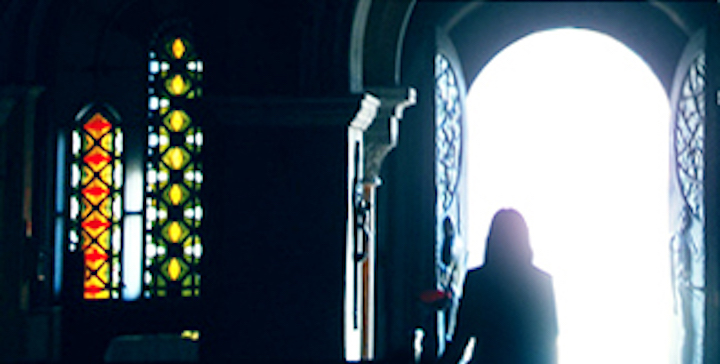I’m giving up church for Lent. To be truthful, I gave up church two months ago. At the beginning of January, I notified my pastor that I would be resigning my leadership position and eventually leaving the church. What I’m giving up for Lent is the guilt that I inevitably feel on Sunday mornings when I stay home working in the garden or go hiking with my family.
I’ve been a member of the United Methodist Church for 10 years, but in my heart I’m still a good Baptist (which may be why I keep teaching at Baptist seminaries!). I still remember my baptismal vows at the historically Black Baptist church of my youth. In them, I promised that if I were to leave that church, I would find another as soon as possible. Since then, I have always tried to keep that promise. And my family has held me accountable to it. When I moved to Miami at the age of 21 to attend graduate school, every phone call to my maternal grandmother would include her asking, “Did you join a church yet?”
The thing is, it is hard to be an African American woman with progressive theological, political, and social commitments and find a church. It is not just that there are elements of the worship experience that make me feel uncomfortable. I can deal with discomfort. In fact, I think that if worship doesn’t regularly stretch us beyond our comfort zone and force us to encounter God through the eyes of others, it’s not worship at all.
I’ve always been willing to make compromises. I can give up my preferences for music or preaching in a certain style if the teaching is theologically sound. I can deal with being one of few people of color in a congregation if the voices of women, young people, and LGBTQ persons are respected and empowered. I can tolerate a certain level of dysfunction in the leadership and organization if the commitment to intersectional justice is strong enough. And I can put up with a combination of those factors if my kid will have the chance to participate in a strong children’s ministry that is discipling him well.
But I cannot stay in churches that – whether in their music, prayer, teachings, polity, or practice – routinely make claims about God that I believe to be contrary to who God is and who God calls us to be. I am opposed to being in church that deny the imago Dei (image of God) within myself and others by forcing us to conform to their image of who we should be. And that has been the experience in almost every congregation that I’ve attended. Ultimately, the pressure to conform reveals itself in one way or another.
When I joined the leadership of this new church plant 18 months ago, I took it as a chance help build a new type of community from the ground up, a place where we would make a radical commitment to becoming beloved community, where people of diverse backgrounds would find themselves welcomed and empowered in the fullness of who they were. What I absolutely did not want was to create another “Benetton” type of multicultural congregation, one where the church was filled with people of different races/ethnicities but who were all culturally white. But eventually, it felt like that was precisely what we’d become.My repeated efforts to redirect us were not successful. It began to feel like I was Sisyphus, doomed to eternally push a boulder uphill by myself.
My freedom came one Friday afternoon when I began reflecting about my perpetual struggle of being a square peg trying to fit into a round hole. “What am I losing of myself each time that I shave off bits of myself to fit? And what if I simply stopped trying to fit into these spaces?” Even the thought of the second question was terrifying. It meant that I would have to let go of a lot, including this new church family that I had grown to love. Over the next two days, after continuous prayer and dialogue with my partner, I decided to take the leap.
So, church, I quitchu. I quitchu with no plan to return to you as you currently exist, because you are abusive. I quitchu along with my many Jesus-loving friends who have quitchu, along with those who are considering it.
I quitchu because you are incapable of loving me in all my complexity, because you are incapable of loving those whom God loves.
I quitchu because you are more concerned with preserving your own existence than being beloved community.
I quitchu because you quit me a long time ago. I quitchu because I need to heal from the pain and damage that you have caused me, and I cannot heal while being in relationship with my abuser.
I quitchu because I realize that I can love Jesus better and more freely beyond the confines of your concrete walls and your restrictive theology.
I quitchu, the institutional church, to join the church in the wild, the church in the catacombs.
Amen and Ashé.

